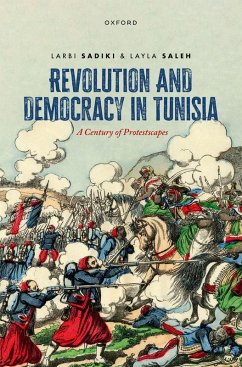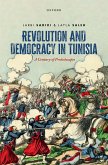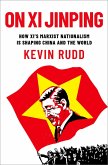This book offers a novel and interdisciplinary exploration of revolution as situated protest in Tunisia. Larbi Sadiki and Layla Saleh present extensive local evidence to demonstrate that popular resistance has been a mainstay of modern Tunisia before, during, and after colonialism. Protest makes peoplehood, and peoplehood makes protest: neither is self-contained. The book explores the rich history and diversity of insurrectionary politics in Tunisia from the onset of protests in the 1960s up to the 2011 Arab Spring revolution and beyond, exploring bottom-up activism (hirak) and revolution (thawrah). The six protestscapes presented in the volume (unions, student activists, the phosphate uprising, the 2010-11 revolution, Kamour, and football ultras) offer a novel way of examining partial 'moving snapshots' that are crucial to understanding revolution. They counter the prevailing narrative of revolution as leaderless, a spontaneous surprise with no historical pedigree or inherited learning, and depict instead an active citizenry whose collective memories are stamped by trials of anti-colonial and anti-dictatorial rebellion.
Dieser Download kann aus rechtlichen Gründen nur mit Rechnungsadresse in A, B, BG, CY, CZ, D, DK, EW, E, FIN, F, GR, HR, H, IRL, I, LT, L, LR, M, NL, PL, P, R, S, SLO, SK ausgeliefert werden.









